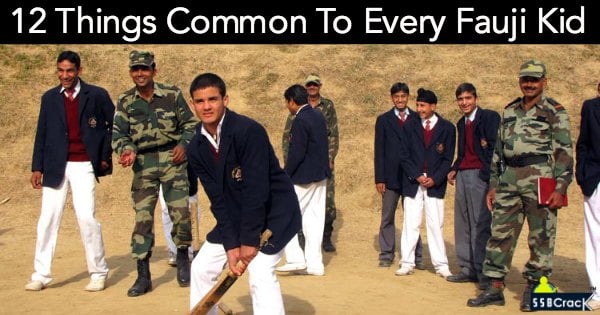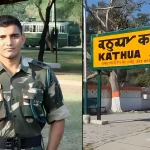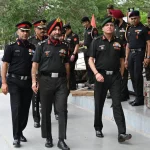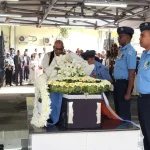Everyone knows that the military life is quite different than the normal, civil life. The work profile is different, the working conditions are different and pretty much everything is completely distinct to the civil life. So it’s pretty obvious that the fauji kids must also be different to the civil kids. They have a different personality altogether. You can easily identify a fauji kid when you see one. The reasons maybe many but the one which is most influential is that they are brought up in a completely different style and way. So, they might have certain things which are common among them.
Download:
I’m listing a few below.
- Uniforms!
This is THE most common thing for fauji kids. Since the time we are born, we’ve seen our fathers/ mothers in uniforms. We see our parents’ seniors and juniors in uniforms from time to time and it’s all very natural for us. We don’t just see the uniform, we can instantly tell the Arms/Services and the Rank of the Armed Forces Personnel. - Changing schools.
This is the inevitable part of being a fauji kid. Every 2-3 years we have to change our schools, as our parents get posted elsewhere. I know a lot of people who crib about this aspect but I (being a fauji kid myself) love it! You get to see new places, (some of which sound alien to the civil children!), make new friends and gain more exposure. - We go on for days, maybe weeks without talking to ours fathers.
Every fauji kid must have at least once found themselves in this situation. We don’t get the chance to talk to our fathers or mothers for days, which might turn into weeks simply because our fathers are posted in a place where network is a big issue or when they have to go on Temporary Duties (TDs) on a short notice or maybe because they are in the middle of an ambush somewhere. - The Cantt Life.
As fauji kids, we really become so comfortable with our lives in the army cantonments. Not to brag but, the cantonment is the most scenic and beautiful place of any station! (Seriously it is.) - The ‘where are you from’ question.
This is a tough one. Every time someone asks a fauji kid this question, I’m sure they can’t quite figure out what to say. I remember that someone had asked the same question to a friend of mine and this is what she answered- ‘well you know, I’ve been living in Delhi for the past 6 years, though I was in Meerut earlier. My father is posted in Agra currently, my hometown is in Bangalore.’ So really, there isn’t a fixed answer. - The reaction we get when we say our fathers are in the Armed Forces.
This is again a common one. In a normal conversation whenever someone asks this question to any fauji kid, the answer to it literally amazes people. When I would tell people that my parents are in the Army, they would be like, ‘really?’ ‘Wow’, ‘how cool’. - Most of the cities have a personal significance for us.
Since the Fauji families have to move around a lot, every fauji kid has at least one significant memory of every station that they’ve been to. The cities on the map each have a story to tell. - 8. Heroism is a part of our lives.
The impressive guests who drop by the house to visit, the amazing people their parents get to tell them about, the larger-than-life people and incredible stories of acts of valour are so common to fauji kids. - Home is where the Armed Forces send you.
There is no clear definition of a home. It’s not static. It’s not permanent. Being with your father, mother and siblings is what home is for the fauji kids. - Our mothers play dual roles.
When the fauji fathers aren’t around, the mothers not only have to take care of the children but also compensate for the absence of the fathers. In my opinion, the fauji kids have the strongest mothers in the whole world. - The mess parties!
Every fauji kid has been to at least one of these. The aunties and uncles talking about topics that you wouldn’t get to hear anywhere else. The Army Band playing songs, uncle and aunties singing, children sitting in one room glued to the television! - The Pride.
Yes, we don’t get to see our fathers often. We don’t get to spend time with them. We move from place to place like nomads, but despite of all this, we are proud to be fauji kids. The pride is something that is innately within us. We are proud of our fathers, for what they do. We are proud of our mothers who remain so strong, always. And we are proud of ourselves.
Download:














